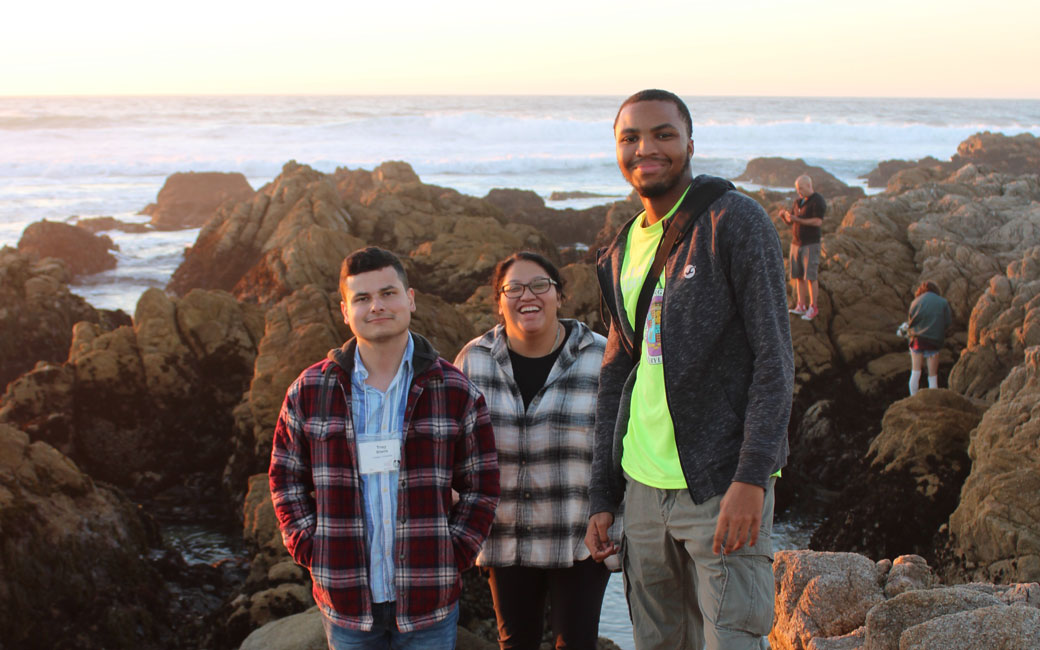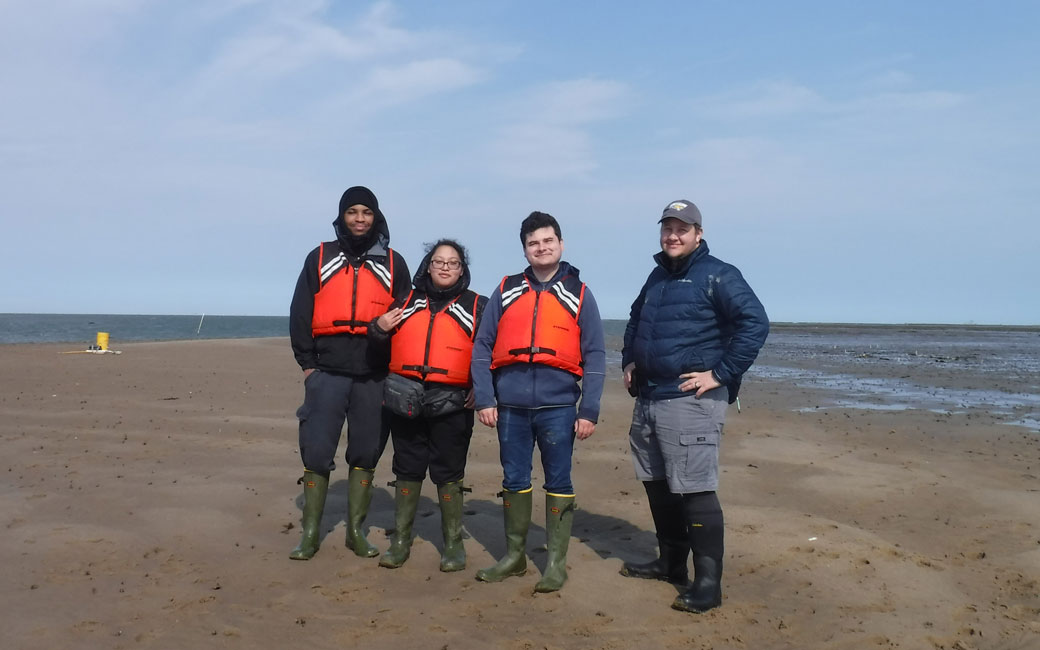From coast to coast: first-generation college students present research at California conference
Students, alumni share value of experiential learning for STEM career exploration
By GRACE HOGGARTH '22 on April 4, 2024

Three TU students shared a unique experience when they presented their research to a national audience for the first time at the Western Society of Naturalists conference in Monterey, California in November.
Senior Jayden Steward ’24, and alumni Troy Stern ’23 and Yuridia Gonzales ’23 research began in professor Will Ryan’s lab researching the evolutionary ecology of marine invertebrates. While in the field, they studied the roles of the environment and landscape on the lifecycles and population structure of sea anemones and hydrozoans in the ocean.
They collected samples of invasive sea anemones in Delaware and then hermit crabs, which play host to a specific kind of colonial hydrozoan, in Virginia.
Their goal was to understand how complex habitats like salt marshes shape connections between populations of these invertebrates, which can only move as far as their hermit crab hosts can walk. Their research also aimed to determine how competition between the colonies living on the same shell influenced the traits of those that survived.

During the conference, TU students presented their research during an afternoon poster session, sat in on panel discussions, listened to individual talks from guest speakers and took part in inclusive discussions for first-generation college students.
Steward and his peers also ventured to the Monterey Bay aquarium and the Pacific Grove monarch butterfly sanctuary and conducted tide pool observations at Asilomar Beach.
For Steward in particular, this professional opportunity offered several firsts: flying in an airplane and exploring the U.S. beyond the East Coast. The biology major found that this was also an opportunity for him to broaden his horizons and visualize what it could be like to work in environments outside of Maryland and explore new career paths.
“It’s really enhanced my academic experience at TU. It’s given me new outlets and even has me considering grad school,” Steward says. “It’s overwhelmingly had a positive impact on my life. Not many college students can say they went to California to present research. I’m really grateful for it.”
Experiential learning and networking opportunities are invaluable for young researchers, particularly first-generation college students, like Steward, Stern and Gonzales.
Alexei Kolesnikov, director of the Office of Undergraduate Research and Creative Inquiry (OURCI), attests, “There is proven value in engaging in research and attending conferences for students. After a conference, students return with a deeper sense of professional identity in their field, a broader view of career options and a more-focused understanding of how their research can lead to further opportunities. Networking during conferences helps students connect with professionals and peers, enhancing their academic and career prospects."
This was true for Ryan when he got involved with the Western Society of Naturalists during his undergraduate career. Years down the line, he is still actively involved and spoke at this year’s conference to share insight into the importance of inclusive, safe and accessible fieldwork for the transgender and broader LGBTQ+ communities.
Ryan wanted to use this opportunity and his research lab to pay it forward to his students and guide them through the hidden curriculum that most first-generation college students are unaware of when they begin their academic journey.
“What I really wanted for them was what this conference had done for me as an undergraduate. I was a first-generation student and didn’t really understand college, let alone academia or how to be a scientist,” says Ryan. “Taking that idealized experimental design and trying to implement it into the world gives you a much greater appreciation for how hard won all the knowledge we have is. Providing students with these opportunities to actually do the work and see the way their life would be if they chose this path is the most important thing.”
The research Steward and his peers participated in was funded by a grant from the Fisher College of Science and Mathematics (FCSM) Endowment. Travel to the conference was jointly funded by the Office of Undergraduate Research & Creative Inquiry (OURCI), the FCSM and the Department of Biology. Students can explore additional learning opportunities through programs like experiential and advanced learning and TU Research Enhancement Program (TUREP) courses.